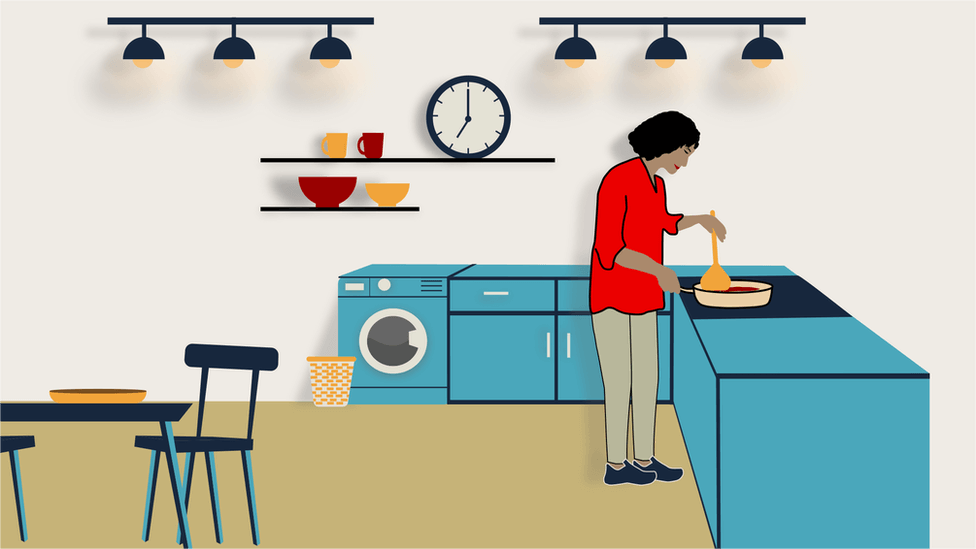

Coronavirus and gender: More chores for women set back gains in equality
 Advanced
Advanced
2020/11/26 21:26
1. acknowledge (v)
to accept, admit, or recognize something, or the truth or existence of something
2. chores (n)
a job or piece of work that is often boring or unpleasant but needs to be done regularly
3. stereotypes (n)
a set idea that people have about what someone or something is like, especially an idea that is wrong
4. sustain (v)
to cause or allow something to continue for a period of time
5. compensation (n)
money that is paid to someone in exchange for something that has been lost or damaged or for some problem
6. estimated (v)
to guess or calculate the cost, size, value, etc. of something
Coronavirus and gender: More chores for women set back gains in equality

The coronavirus pandemic could wipe out 25 years of increasing gender equality, new global data from UN Women suggests.
Women are doing significantly more domestic chores and family care, because of the impact of the pandemic. “Everything we worked for, that has taken 25 years, could be lost in a year,” says UN Women Deputy Executive Director Anita Bhatia.
Employment and education opportunities could be lost, and women may suffer from poorer mental and physical health. The care burden poses a “real risk of reverting to 1950s gender stereotypes”, Ms Bhatia says.
Even before the pandemic, it was estimated women were doing about three quarters of the 16 billion hours of unpaid work that are done each day around the world.
Women’s unpaid work often covers the cost of care that sustains families, supports economies and fills in for the lack of social services, but it’s rarely officially recognised as work.
“The key point here is that this has always been undervalued and it has always been treated as something that you didn’t have to worry about because there wasn’t compensation involved,” says Ms Bhatia.
“The pandemic has shone a spotlight on the fact that unpaid work has really been the social safety net for the world and has made it possible for others to go out and earn a productive income, while actually hampering the growth opportunities and the employment opportunities of those women who are carrying the care burden.”
“You cannot underscore enough how big a problem this is and how big an impact it’s going to have if governments and businesses don’t do something,” says Ms Bhatia.
The UN is calling on governments and businesses to acknowledge that unpaid work exists and implement measures such as extra family leave, or extra paid leave, and keeping childcare centres open.
Resource: https://www.bbc.com/news/world-55016842

- In your country are the responsibilities of a mother the same as the responsibilities of a father to their families?
- What jobs are deemed as appropriate for men but inappropriate for women?
- What things can men or women do that the other cannot do and why?
“We’ve begun to raise daughters more like sons… but few have the courage to raise our sons more like our daughters.”
Gloria Steinem



